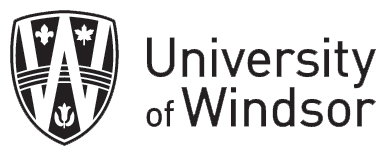Presentation Title
Unless You're Nike: Sketching the Identity Negotiations of Male Student-Athletes and their Coaches
Location
Room 306, School of Social Work
Start Date
29-9-2018 2:15 PM
End Date
29-9-2018 3:45 PM
Presentation Types
Paper
Abstract
Participation in sport does not turn boys from blank slates into men with hard masculine identities. More than simply passive members of a hard masculine cult, male student-athletes and their coaches take up complex and contradictory identities within the larger athletic structures in which they operate. In this paper, I draw on the work of Foucault and Butler to take up a feminist poststructural analysis of the power relations that shape the identities accessible to men in the sport arena. This analysis stems from eight interviews conducted with members of a U Sports basketball team. These interviews were focused on sketching men’s experiences, perceptions, and performances of masculinities. The stories told by participants call attention to male student-athletes and their coaches as active agents in the identity building process -- negotiating, resisting, and learning dominant discourses across multiple sites. In this sense, critical sport researchers and anti-violence activists must work to avoid approaching these men as non-agentic beings – tricked or coerced into performing hard masculinity. Despite articulating feelings of ambivalence, it appears some men are willing to operate as docile agents in the sport arena. Why? “Precisely because some aspects of the exercise and experience of power are profoundly pleasurable” (Foucault, 1980, p. 34). How, then, can we, as anti-violence activists, help male-student athletes and their coaches consider the deeply personal and interpersonal costs of these pleasures? And, to what extent is this possible within a “win-at-all-costs” sporting culture wherein the institutional pressures for taking up hard masculinity are considerable?
Bio Statement
Stephen is a PhD student in the Recreation and Leisure Studies program at the University of Waterloo. For the past seven years, he has been actively involved in organizing around issues such as men’s violence against women. Previously, Stephen was the coordinator of Male Allies, a public education program run by the Sexual Assault Support Centre of Waterloo Region (SASC). In this position, he worked to create conversations with men and boys around issues of healthy relationships, consent, and healthy masculinity. Stephen holds an MA in Sociology from Brock University (2016). His thesis was a qualitative analysis of the links between sport and rape culture.
Unless You're Nike: Sketching the Identity Negotiations of Male Student-Athletes and their Coaches
Room 306, School of Social Work
Participation in sport does not turn boys from blank slates into men with hard masculine identities. More than simply passive members of a hard masculine cult, male student-athletes and their coaches take up complex and contradictory identities within the larger athletic structures in which they operate. In this paper, I draw on the work of Foucault and Butler to take up a feminist poststructural analysis of the power relations that shape the identities accessible to men in the sport arena. This analysis stems from eight interviews conducted with members of a U Sports basketball team. These interviews were focused on sketching men’s experiences, perceptions, and performances of masculinities. The stories told by participants call attention to male student-athletes and their coaches as active agents in the identity building process -- negotiating, resisting, and learning dominant discourses across multiple sites. In this sense, critical sport researchers and anti-violence activists must work to avoid approaching these men as non-agentic beings – tricked or coerced into performing hard masculinity. Despite articulating feelings of ambivalence, it appears some men are willing to operate as docile agents in the sport arena. Why? “Precisely because some aspects of the exercise and experience of power are profoundly pleasurable” (Foucault, 1980, p. 34). How, then, can we, as anti-violence activists, help male-student athletes and their coaches consider the deeply personal and interpersonal costs of these pleasures? And, to what extent is this possible within a “win-at-all-costs” sporting culture wherein the institutional pressures for taking up hard masculinity are considerable?


